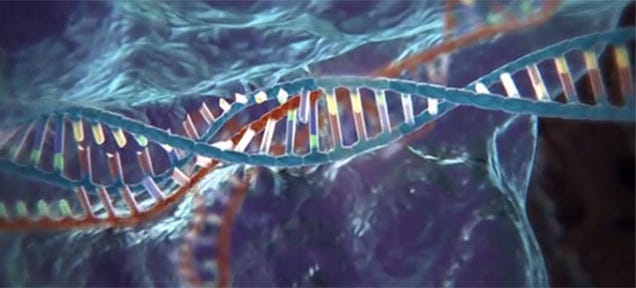A professor of Plant Cell and Molecular Biology at Umea University in Sweden named Stefan Jansson served a hearty dish of pasta and "CRISPRed" vegetables. A recent breakthrough in gene editing allowed Jansson to grow mushroom and cabbage with parts of their DNA missing. Although it's the latest technology researchers are studying, CRISPR is a natural mechanism used by a wide range of bacteria. CRISPR is actually short for "clustered regularly interspaced short palindromic repeats." It is a DNA sequence that bacteria uses to detect a foreign DNA strand that a virus might have inserted. This sequence recognizes the virus' DNA and attaches itself to it. Cas9 is an enzyme that binds CRISPR and cuts the invading DNA to prevent it from replicating. The system CRISPR/Cas9 snips targeted DNA at precise locations and can be used on many genes at once. Researchers have learned that they can modified Cas9 to cut a specific sequence which gives them the ability to edit a gene on a DNA strand. This mechanism could possibly be used in drug development, agriculture and maybe human treatment.
The concern however, is whether or not these plants can be grown without violating GMO regulations. If these plants are considered GMOs, that would prevent mass productions in many part of the world. The Swedish Board of Agriculture stated in 2015 that if only segments are removed and they are not replaced with "foreign" ones, then it does not fall under GMO legislation. The summer of 2016 was the first time plants with CRISPR/Cas9 edits were harvested outside of a lab. This could be the first "big step" into a new phase of agriculture in which science can be applied provide nutritious meals.

There is one huge red flag i see with this project. If the scientist is able to grow these vegetables with part of their DNA missing, what will that do in effect to humans or animals who then eat these vegetables? I'm sure even scientists don't have the answer to that yet because the discovery is so new, and observations of its effects would need to be recorded over a long period of time. I think it's great that scientists are able to make all of these new discoveries and test the limits of science, but I also think it comes at a price, and the health of others is not one i think should be risked.
ReplyDeleteAre there any known side effects from eating the food used with CRISPR? Also does it have to get passed through the FDA before being able to be used?
ReplyDelete